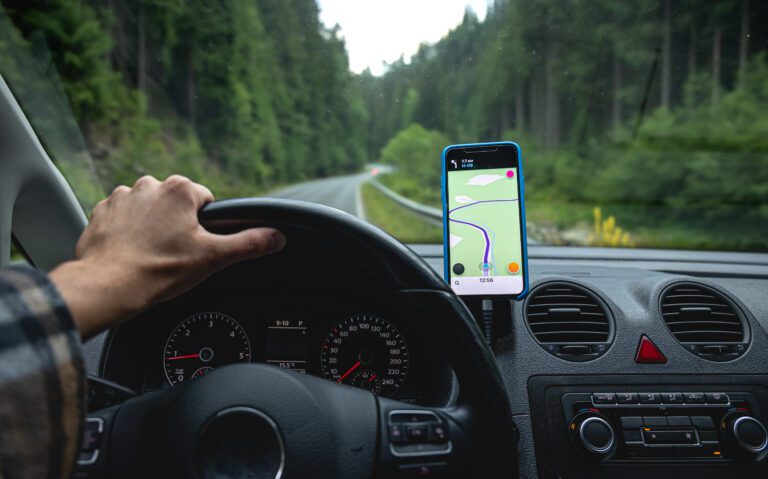How Waze Identifies DUI Checkpoints: An Inside Look

Driving under the influence (DUI) is a serious offense with severe consequences, particularly in states like Colorado, where DUI laws are stringent and enforcement is rigorous. To avoid DUI checkpoints and ensure a safer driving experience, many drivers turn to navigation apps like Waze. But how does Waze identify DUI checkpoints? Here’s an inside look at the technology and community behind this navigation app.
The Role of Waze in Modern Navigation
Waze, a subsidiary of Google, is a GPS navigation software that provides turn-by-turn directions, user-submitted travel times, and route details while downloading location-dependent information over a mobile telephone network. One of Waze’s standout features is its ability to crowdsource real-time data from its users, creating a dynamic and interactive map.
Crowdsourcing: The Backbone of Waze
The core functionality that allows Waze to identify DUI checkpoints is its crowdsourcing mechanism. Users can report various incidents on the road, including traffic jams, accidents, and police activities, including DUI checkpoints. When a Waze user encounters a DUI checkpoint, they can quickly log this information into the app, alerting other users in the area.
- User Reports: When a driver sees a DUI checkpoint, they tap the alert button on the Waze app and select “Police” followed by “Visible” or “Hidden.” This distinction helps other users prepare for what’s ahead.
- Verification: Other Waze users who pass the same spot can confirm or deny the presence of the checkpoint. This crowdsourced verification helps maintain the accuracy of the reports.
- Data Aggregation: Waze aggregates these reports and displays them on the map, providing real-time updates to its users. The more users confirm a report, the more reliable it becomes.
Technology Behind the Reports
While crowdsourcing is essential, it’s the underlying technology that ensures the efficiency and reliability of these reports.
- GPS and Mapping Data: Waze utilizes GPS data to pinpoint the exact location of DUI checkpoints. This data is constantly updated to reflect the most current conditions.
- Algorithmic Analysis: Waze’s algorithms analyze the incoming data to determine the reliability and relevance of reports. They consider factors such as the number of confirmations and the time elapsed since the report was made.
- User Trust Levels: Waze assigns trust levels to users based on their reporting history. Frequent and accurate reporters have higher trust levels, making their reports more influential.
DUI Offense and Laws in Colorado
Understanding how DUI checkpoints function is crucial, especially in states like Colorado, where DUI laws are stringent.
- Legal Limits: In Colorado, the legal blood alcohol concentration (BAC) limit is 0.08% for drivers over 21. For drivers under 21, the limit is 0.02%.
- Penalties: Penalties for a DUI offense in Colorado can be severe, including fines, license suspension, mandatory alcohol education classes, and even jail time. Repeat offenders face harsher penalties, with the possibility of extended jail sentences and longer license suspensions.
- Sobriety Checkpoints: Colorado law enforcement agencies regularly set up DUI checkpoints to deter and catch impaired drivers. These checkpoints are strategically placed and often publicized to enhance their deterrent effect.
How Waze Helps Drivers in Colorado
Given the stringent DUI laws in Colorado, Waze provides a valuable tool for drivers to navigate these challenges.
- Real-Time Alerts: By receiving real-time alerts about DUI checkpoints, drivers can make informed decisions about their routes, potentially avoiding checkpoints and reducing the risk of encountering law enforcement.
- Legal Awareness: Waze’s community-based reporting system helps raise awareness about DUI laws and checkpoints, encouraging drivers to stay informed and comply with legal limits.
- Safe Navigation: While Waze can help drivers avoid DUI checkpoints, it also promotes safe navigation by alerting drivers to hazards and encouraging responsible driving behavior.
Ethical Considerations
While Waze’s ability to identify DUI checkpoints can be seen as a driver-friendly feature, it raises several ethical considerations.
- Public Safety: Critics argue that alerting drivers to DUI checkpoints may enable impaired drivers to avoid detection, potentially compromising public safety. Law enforcement agencies emphasize the importance of DUI checkpoints in deterring drunk driving and reducing accidents.
- Legal Implications: There is an ongoing debate about the legality and ethics of using apps like Waze to avoid DUI checkpoints. While some argue that it undermines law enforcement efforts, others believe it’s a tool for promoting informed and safe driving.
- Responsibility: Ultimately, the responsibility lies with drivers. Waze can provide information, but it’s up to individual drivers to make responsible decisions. Avoiding a DUI checkpoint should not be seen as a way to evade the law but rather as an encouragement to drive safely and legally.
Conclusion
Waze’s ability to identify DUI checkpoints through crowdsourcing and advanced technology offers a fascinating glimpse into the future of navigation and community-based reporting. For drivers in Colorado, where DUI laws are strictly enforced, this feature can provide valuable information to navigate safely and legally. However, it’s essential to consider the ethical implications and remember that the ultimate goal is to promote safe and responsible driving. By leveraging the power of community and technology, Waze continues to redefine how we navigate our roads, making driving a safer experience for everyone.
Understanding how Waze identifies DUI checkpoints not only highlights the technological advancements in navigation but also underscores the importance of community and responsibility on the road. Whether in Colorado or elsewhere, using Waze responsibly can help drivers stay informed, avoid legal troubles, and most importantly, drive safely.
At Thomas & Ahnell, LLC, we are committed to supporting safe driving practices and ensuring that our community stays informed about legal matters that affect their daily lives.
Do you have further questions or concerns? Call us or contact the attorneys at Thomas & Ahnell, LLC, and we will be happy to help.


